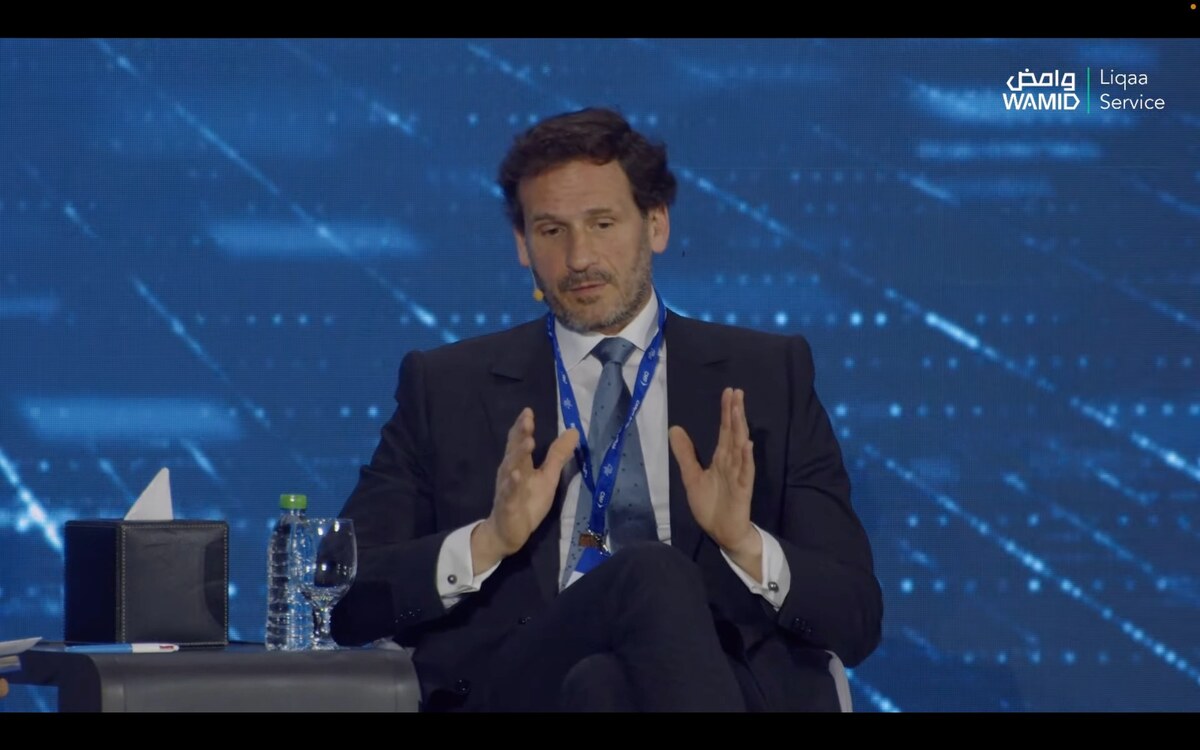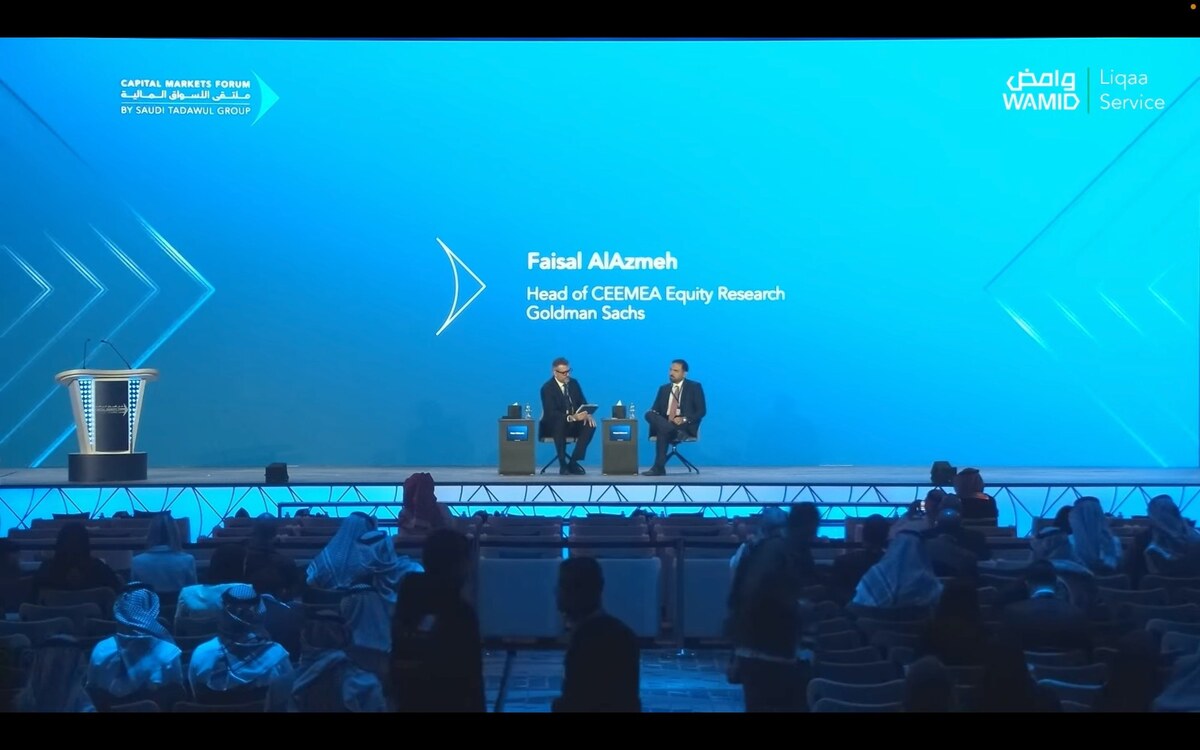RIYADH: As Saudi Arabia continues its economic diversification journey, the General Authority for Small and Medium Enterprises continues to spearhead several initiatives designed to propel the growth of the Kingdom’s private sector.
The authority, also known as Monsha’at, ushered in a wave of initiatives this year, including strong efforts to boost financing for small and medium enterprises in the Kingdom, along with other programs aimed at strengthening entrepreneurship culture among Saudi citizens.
In February, a report released by the authority revealed that the number of SMEs in Saudi Arabia reached 1.3 million by the end of 2023, representing a quarter-on-quarter rise of 3.1 percent.
Monsha’at, at that time, said that this growth in the number of SMEs was driven by robust public investment, strong entrepreneurial drive, and the region’s leading venture capital investments.
Strengthening the SME sector is crucial for Saudi Arabia, as the Kingdom is currently pursuing its economic diversification journey by reducing its dependence on oil.
With its various initiatives, Monsha’at aims to increase the SME contribution to Saudi Arabia’s gross domestic product to 35 percent by the end of this decade. The report also added that the Riyadh Expo in 2030 is also expected to be a major boon for Saudi SMEs.
“SMEs across the ecosystem will also benefit from nearly $1 trillion being invested in Riyadh over the next seven years, especially firms that prioritize sustainability, innovation, and creativity in sync with broader diversification efforts led by Vision 2030,” said Monsha’at in the report.
Here are some of the significant developments and initiatives undertaken by Monsha’at this year.
Financing initiatives
In May, Monsha’at signed a memorandum of understanding with Saudi Arabia’s Social Development Bank, allowing the authority to join the bank’s Entrepreneurs Program – a financing product aimed at supporting the assets and operating costs of new business entities in the Kingdom.
According to a Saudi Press Agency report published at that time, Monsha’at will work to provide training and advisory services to further empower entrepreneurs who benefit from the bank’s entrepreneurs program through support centers in Riyadh, Madinah, Jeddah, and Alkhobar.
Under the terms of the agreement, SDB will work to process the submitted lending applications and make the appropriate decisions regarding them.
In July, another report by Saudi Arabia’s SME Bank noted that it provided SR1 billion ($270 billion) to micro, small, and medium-sized enterprises in the Kingdom from its launch in December 2022 until January 2024.
“The leadership of Saudi Arabia acknowledges the vital role that SMEs play, as they constitute 99 percent of the Kingdom’s businesses. Various initiatives have been put in place to further catalyze their growth,” said Abdulrahman bin Mohammed bin Mansour, acting CEO of the SME Bank at that time.
Another report released by the Saudi Central Bank in June revealed that credit facilities provided by SMEs in the Kingdom surged by 16 percent in the first three months of this year to SR293.43 billion, compared to the same period in 2023.
Supporting entrepreneurship
In 2024, Monsha’at also conducted various programs aimed at strengthening entrepreneurship in Saudi Arabia.
In January, the authority said that it concluded an e-commerce tour across 14 cities and provinces across different regions of the Kingdom, which witnessed the signing of multiple agreements to foster entrepreneurial culture in the e-commerce sector.
In a press statement, Monsha’at revealed that it aimed to support and empower entrepreneurs to benefit from the services and facilities provided by relevant entities, along with promoting the culture of entrepreneurship in the e-commerce sector.
“The tour provided exclusive services and offers to entrepreneurs in all targeted regions to support their entrepreneurial projects and encourage growth by leveraging the opportunities and potentials offered in the field of e-commerce,” said the authority in a statement.
During the tour, Monsha’at signed two cooperation agreements with the M5azn e-store platform and Paydo company, with the goal of supporting and developing the entrepreneurial environment in the e-commerce sector.
“The challenges faced by entrepreneurs in the e-commerce field were addressed, and suitable solutions were provided to overcome them. Furthermore, the tour included diverse training programs on various fields and topics related to the world of e-commerce,” said the authority in a statement at that time.
In the same month, Monsha’at also launched the University Entrepreneurship Council, an initiative aimed at promoting entrepreneurship in Saudi universities.
“The Council aims to promote entrepreneurship in Saudi universities, by analyzing and studying the current situation and discussing ways to spread the culture of entrepreneurship in the university environment and exchanging ideas and experiences that will support university entrepreneurship projects and activate their role in shaping and building the local economic system,” said Monsha’at.
The authority added that this initiative comes within the framework of its efforts to “support and emphasize the entrepreneurial environment in the university sector in the Kingdom, with the aim of enabling and developing the Kingdom’s economy, promoting sustainability in entrepreneurial projects, and addressing all the challenges that entrepreneurs may encounter.”
In January, Monsha’at also launched a guide for establishing commercial innovation centers in Saudi Arabia.
Through this guide, the authority aims to support entrepreneurs and SMEs owners in understanding the necessary steps to establish innovation centers in the Kingdom.
“The guide includes a collection of success stories from local and international entities in the field of establishing innovation centers. These stories have contributed to the establishment and market entry of startups, thus creating new jobs in the market by offering tools, necessary technologies, training, development, and providing consultations and guidance,” said Monsha’at.
In February, the authority organized “Tomoh Wednesday” in collaboration with energy giant Saudi Aramco, aimed at establishing an entrepreneurial environment and building professional relationships, as well as identifying the most prominent challenges that “Tomoh” enterprises may encounter.
VC funding continues to flow for Saudi startups
A report from Magnitt indicated that venture capital funding continued to flow for startups in Saudi Arabia, despite the Middle East and North Africa region witnessing a dip in this sector.
According to this report, Saudi Arabia ranked first in the MENA region for total venture capital funding at $1.33 billion in 2023, representing a rise of 33 percent compared to the same period in 2022.
This trend continued in the first quarter of this year, as venture capital funding to startups in Saudi Arabia hit $240 million.
Monsha’at, in its February report, noted that investment-friendly public policies have played a crucial role in attracting start-ups to establish their bases in the Kingdom.
The authority also added that significant deals involving Tabby, Tamara, Nana, and Floward have propelled fintech and e-commerce to the forefront, with these sectors experiencing 170 percent year-on-year funding growth.


























